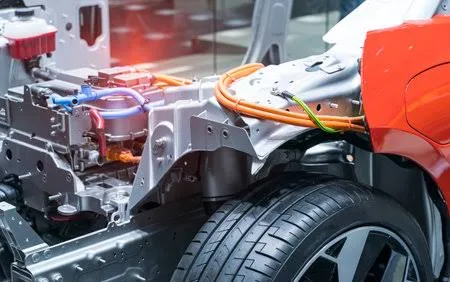In a significant development in the realm of lithium-ion battery supply chains, Canada has overtaken China to claim the top spot in BloombergNEF’s annual Global Lithium-Ion Battery Supply Chain Ranking.
This groundbreaking achievement marks the first time China has been displaced from its longstanding position at the helm of this critical industry ranking.
Canada’s rise to the top position is attributed to its consistent advancements in manufacturing and production. Likewise, it’s robust Environmental, Social, and Governance (ESG) credentials.
Canada proactive stance in fostering a secure, reliable, and sustainable lithium-ion battery supply chain has propelled it to the forefront of shaping the future of battery technologies.
Also Read: Mining industry on the right ESG path – but more work to do, IMARC told
Canada success In BloombergNEF’s Ranking
Additionally, Canada’s strong integration with the United States automotive sector has positioned it as a significant beneficiary of the ‘friendshoring’ ambitions outlined in the Inflation Reduction Act.
Currently, China still has the strongest established supply chain. The increasing importance of sustainability across the lifecycle of lithium-ion batteries means the region must take a more proactive approach to tackle ESG issues. More so, issues that benefit its supply chain in the long term.
The overarching success of North America’s supply chain is underscored by strong policy commitment. At the same time, it’s effective implementation, with both Canada and the United States securing two of the top three positions in the ranking
Mexico, is the only country to make progress in all supply chain categories assessed by BNEF. It rose an impressive nine positions in the ranking to 19th.
This is because scaling up domestic electric vehicle industry will be difficult for the nation. However, existing mining and automotive activities are good starting points. The US IRA has played a crucial role in boosting Mexico’s prospects when it comes to the EV and energy storage sectors, but the government will need to actively support the budding sector to make these improvements sustainable.
Kwasi Ampofo, BNEF’s Head of Metals and Mining, said, “Global investment in the clean energy supply chain, including equipment factories and battery metals production, hit a new record at $135 billion this year .
That said, trade relations will be an interesting factor to monitor in 2024, as foreign policy efforts in the US and EU continue to make it difficult for international companies to operate in major markets like China.”
Also Read: Canada’s Concordia Launches Initiative for Innovative Partnerships in Africa
African Nation’s Lithium-Ion Battery Supply Chain Ranking
Additionally, all African countries received the ranking. South Africa, Morocco and the DRC improved their upstream presence. This is because of the opportunity in their rich mineral deposits.
Notably, African nations have worked with global partners to expand their mining sectors. More so, starting new manufacturing facilities. To ensure local supply chains can emerge, countries in the region need to continue to maximize the value-add steps. They include metals refining and battery precursors in their materials value chain.
South and Southeast Asia have seen the most improvement compared to last year. At the moment, India and Indonesia are leading the way for supply chain growth. The region’s growth momentum will lead to an adjustment in the global supply chain.
Ellie Gomes-Callus, Metals and Mining Associate, BloombergNEF said, “The rapid development of targeted supply chain roadmaps has helped emerging economies race through the ranks in our fourth edition. But it is vital for these nations to maintain momentum in order to realize their full potential.”
Now in its fourth edition, the Global Lithium-Ion Battery Supply Chain Ranking considers 46 individual metrics. This helps to track the supply chain potential across five equally weighted categories. They include raw materials, battery manufacturing, downstream demand, ESG considerations, and ‘industry, infrastructure and innovation’. The rank is assigned per category, there after an overall ranking is given.
About BloombergNEF
BloombergNEF (BNEF) is a strategic research provider covering global commodity markets. At the same time, it covers disruptive technologies driving the transition to a low-carbon economy.
Our expert coverage assesses pathways for the power, transport, industry, buildings and agriculture sectors to adapt to the energy transition. We help commodity trading, corporate strategy, finance and policy professionals navigate change and generate opportunities.

